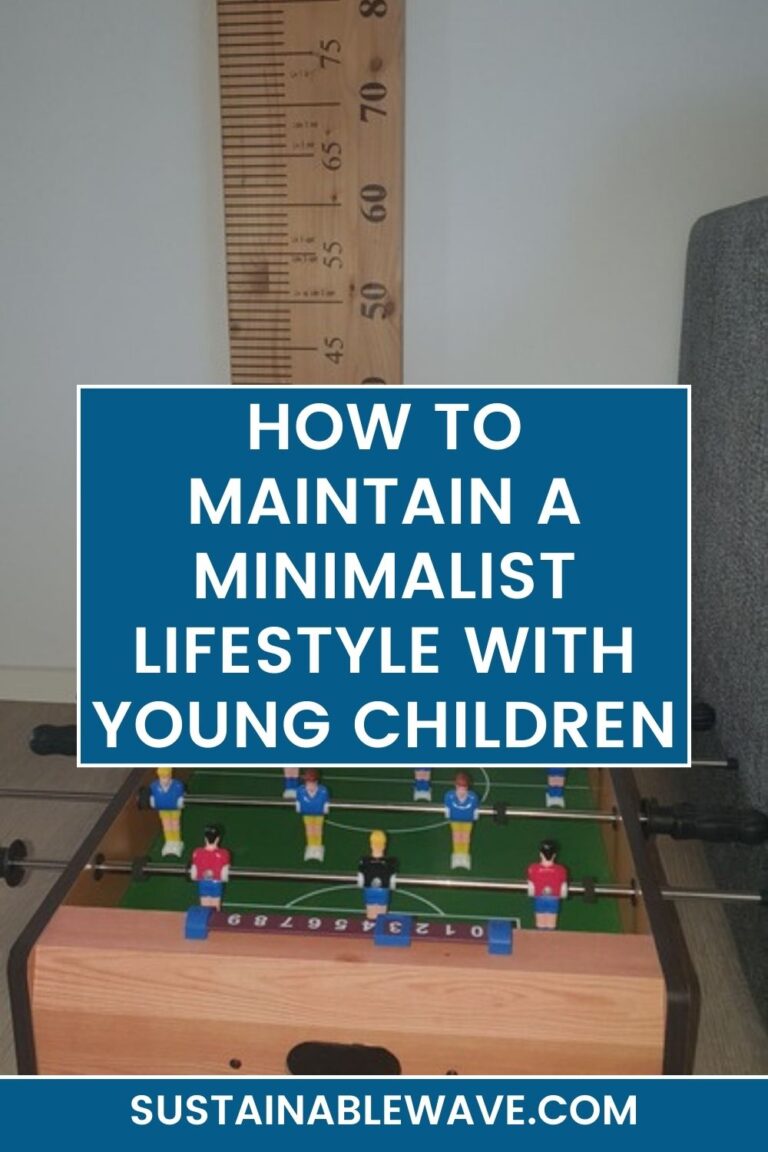In today’s digitally connected world, the deluge of news and social media content can often be overwhelming. It’s increasingly common to feel the pressure to form and express opinions on a myriad of topics, many of which don’t directly impact us in any way.
This constant engagement can lead to mental exhaustion and unnecessary conflicts. But there is a growing perspective that suggests the value in selective engagement: the conscious choice to not have an opinion on everything.
Embracing this approach can lead to a more focused, peaceful mind, reducing the ‘mental noise’ that comes from the constant bombardment of information and debates in our digital lives.
Mental Minimalism – The Power of Not Having an Opinion on Everything

In today’s fast-paced digital era, embracing selective engagement can be a form of mental minimalism that brings profound peace and clarity. This concept goes beyond simply reducing one’s digital footprint; it’s about the power of consciously deciding not to have an opinion on everything.
This selective engagement is not a sign of disinterest or ignorance, but a mindful decision to focus on what truly matters, conserving mental energy and avoiding the stress of constant opinionating.
The relentless stream of news, social media updates, and online discussions can create an environment where the pressure to form and share opinions is incessant. However, it’s vital to recognize that not every issue requires our input.
The act of scrolling past a topic, acknowledging its existence but choosing not to engage, is an exercise of self-awareness and self-control. This approach allows individuals to focus on issues that truly matter to them, those that align with their values, expertise, and areas where they can make a real impact.
By not cluttering our minds with every contentious issue that surfaces online, we create room for more meaningful thoughts and activities. It helps in avoiding the mental fatigue that comes from engaging in endless debates, especially on topics where our opinions might be redundant or uninformed.
This selective engagement is not about disengaging from the world but about engaging more thoughtfully and purposefully. It’s about understanding that our mental resources are finite and choosing to allocate them wisely. In doing so, we not only preserve our mental health but also contribute more effectively to the conversations that we choose to be a part of.
Reducing Digital Footprint for Mental Health
Stoicism, an ancient philosophy advocating control over one’s reactions and emotions, finds renewed relevance in the digital age. The practice of reducing one’s digital footprint is a modern application of Stoic principles, fostering mental health in a world saturated with digital stimuli.
By consciously choosing to limit social media consumption and curate online experiences, individuals can assert control over their digital interactions, echoing Stoic ideals of focusing on what one can influence while accepting what cannot be changed.
This approach to digital engagement involves a mindful curation of online content and a deliberate reduction in the time spent on digital platforms. It encourages discernment in what to consume and what to ignore, helping individuals avoid the constant stream of negative news and contentious debates that often dominate digital spaces.
By doing so, one can create a more positive and nourishing online environment, tailored to personal interests and needs, while avoiding the stress and negativity that can come from excessive digital exposure.
The reduction of one’s digital footprint also aligns with the Stoic practice of introspection and self-awareness. It promotes a healthier balance between the virtual and real worlds, ensuring that online interactions enhance rather than detract from one’s well-being.
Strategies for Navigating Digital Conversations
Avoiding the pitfalls of online debates requires strategic navigation of digital conversations. The immediacy and anonymity of online platforms can often lead to heated exchanges and unproductive arguments.
Here are some key strategies to navigate these waters a bit more effectively:
- “Not My Circus, Not My Monkeys”: This saying underscores the importance of recognizing when a debate or issue does not directly concern us or contribute positively to our lives. By applying this mantra, we can avoid getting entangled in unnecessary online conflicts.
- Curating Your Digital Space: Actively managing our digital environment by unfollowing or muting contentious feeds and focusing on content that adds value and joy can significantly reduce exposure to triggering debates.
- Recognizing Redundancy: Before joining a discussion, consider if your point has already been made. This reduces repetitive and overwhelming discourse and can save time and energy.
- The Power of Silence: Understanding that not every post needs our comment or reaction. Sometimes, the best response is no response, allowing us to maintain our peace and avoid pointless arguments.
- Choosing Battles Wisely: Not all debates are worth engaging in. Assessing the importance and potential impact of a discussion can help in deciding whether to contribute or step back.
- Admitting Lack of Knowledge: There’s strength in acknowledging when we don’t have enough information to contribute meaningfully to a discussion. This honesty prevents the spread of misinformation and encourages a culture of learning.
Using these tactics to navigate online conversations more wisely, can preserve our mental health and ensure our digital interactions are more meaningful and less stressful.
The Challenge of Non-Participation in a Hyper-Opinionated World
In a hyper-opinionated world, choosing not to participate in every debate is akin to adopting a stance of mental minimalism. This approach, while empowering, often comes with its own set of challenges. When one decides to stay silent or not engage in certain discussions, it can be misinterpreted as indifference or ignorance. It’s essential to be prepared for such misinterpretations and to confidently uphold one’s decision to practice mental minimalism when it seems most appropriate.
Non-participation is often mistaken for apathy. However, it’s crucial to differentiate between a lack of care and the strategic choice to conserve mental energy for issues where one can make a real impact. Choosing to listen rather than speak is not an act of passivity but an active process of absorbing diverse perspectives, which can often be more enlightening than contributing to the existing noise.
Accepting that one’s opinion is not always necessary or influential in certain contexts can be a humbling yet powerful realization. It underscores the importance of focusing efforts where they can truly make a difference. There’s a societal expectation to engage in popular discourse, and resisting this pressure requires confidence in one’s own values and the understanding that meaningful participation is not defined by the quantity of input but by the quality and intention behind it.
The decision not to engage should come from a place of introspection about what truly matters to the individual. It’s about prioritizing mental well-being and personal values over societal expectations. By acknowledging these challenges and adopting a thoughtful approach to non-participation, individuals can navigate a hyper-opinionated world more effectively, staying true to themselves while maintaining a healthy engagement with the world around them.
Learning When to Speak Up and When to Listen

Balancing knowledge and engagement in our highly interconnected world is a nuanced endeavor. It involves discerning when to voice our opinions and when to adopt the role of an attentive listener. This balance is not just about speaking less; it’s about understanding the value of thoughtful participation versus the power of informed silence.
In a realm where everyone has a platform, the urge to contribute to every conversation can be strong. However, the true art lies in recognizing when our voice adds value and when our silence allows for deeper understanding. It’s about acknowledging that not every issue requires our commentary and that sometimes, listening is the best way to learn and grow.
This balance also involves an awareness of our own knowledge limitations. It encourages a humble acceptance that we don’t have all the answers and that there’s always more to learn. By choosing to speak only on topics where we have genuine understanding or experience, our contributions become more meaningful. Conversely, by listening more, especially to voices that challenge our perspectives or add new dimensions to our understanding, we broaden our horizons and deepen our knowledge base.
I’m Thomas, the owner of SustainableWave. Passionately promoting a sustainable planet. With experience in various eco-roles, I’ll share green tips, sustainability hacks, and personal eco-journeys on my blog.






